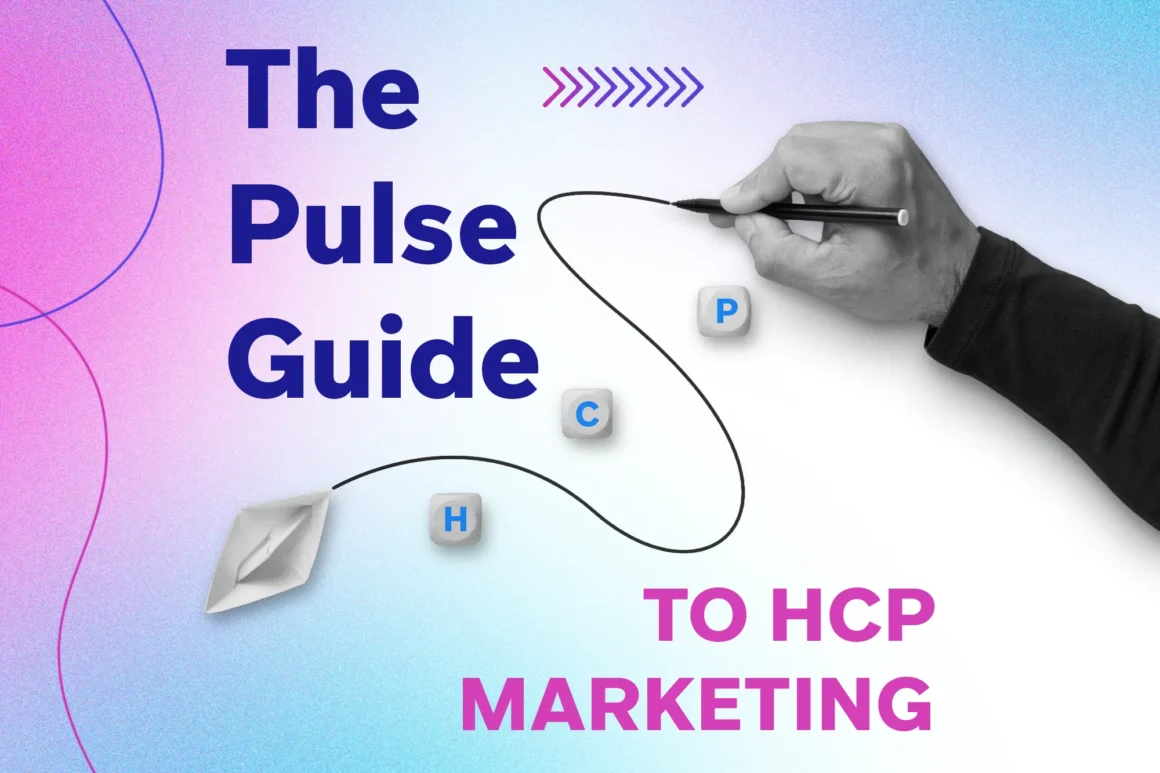HCP marketing involves specialized strategies to engage healthcare professionals effectively. This article reveals ten best practices that can boost your HCP marketing efforts. Learn how to tailor your messaging, identify your target audience, and leverage data for better engagement with healthcare professionals.
Introduction to HCP Marketing

HCP marketing, or Healthcare Professional marketing, is a cornerstone of the pharmaceutical industry’s approach to reaching key decision makers in healthcare.
This specialized form of marketing focuses on engaging healthcare professionals — including physicians, pharmacists, nurse practitioners, and other medical experts — through targeted marketing efforts designed to inform, educate, and influence their decision making processes.
Pharmaceutical companies, medical device manufacturers, and other healthcare organizations rely on effective HCP marketing strategies to promote their products and services, ensuring that healthcare professionals have the latest information to make informed choices that impact patient care.
Unlike traditional consumer marketing, healthcare professional marketing requires a deep understanding of the unique needs, preferences, and challenges faced by HCPs. Successful marketing strategies are built on a foundation of trust, scientific credibility, and relevant content that supports the clinical and professional goals of healthcare professionals. By prioritizing evidence-based communication and aligning marketing messages with the realities of medical practice, pharmaceutical companies can foster meaningful relationships with HCPs, ultimately driving better patient outcomes and supporting the adoption of innovative treatments across the healthcare industry.
Key Takeaways
- Understanding the unique needs and preferences of healthcare professionals is critical for effective marketing.
- Segmenting the target audience by specialties and behaviors enhances marketing effectiveness.
- Implementing data-driven strategies and omnichannel approaches, along with regulatory compliance, fosters better engagement.

Understanding the Unique Needs of Healthcare Professionals
Healthcare professionals (HCPs) operate within a framework that demands substantial proof of any claims made by marketers in the pharmaceutical industry. They rely heavily on clinical data, research validation, and peer-reviewed studies, including medical journals, to make informed decisions about patient care. This evidence-based approach necessitates that any marketing communications directed at the hcp audience must be backed by rigorous scientific evidence to gain their trust and attention, especially in relation to medical practices.
The healthcare industry is diverse, with HCPs having varied specific interests and needs based on their specialties and practice settings. When segmenting HCPs, it is important to consider different healthcare settings such as group practice, which can influence provider affiliations and geographic distribution. Effective segmentation of healthcare professionals can be achieved by understanding these unique needs and hcp preferences. For instance, some HCPs may prefer receiving information via:
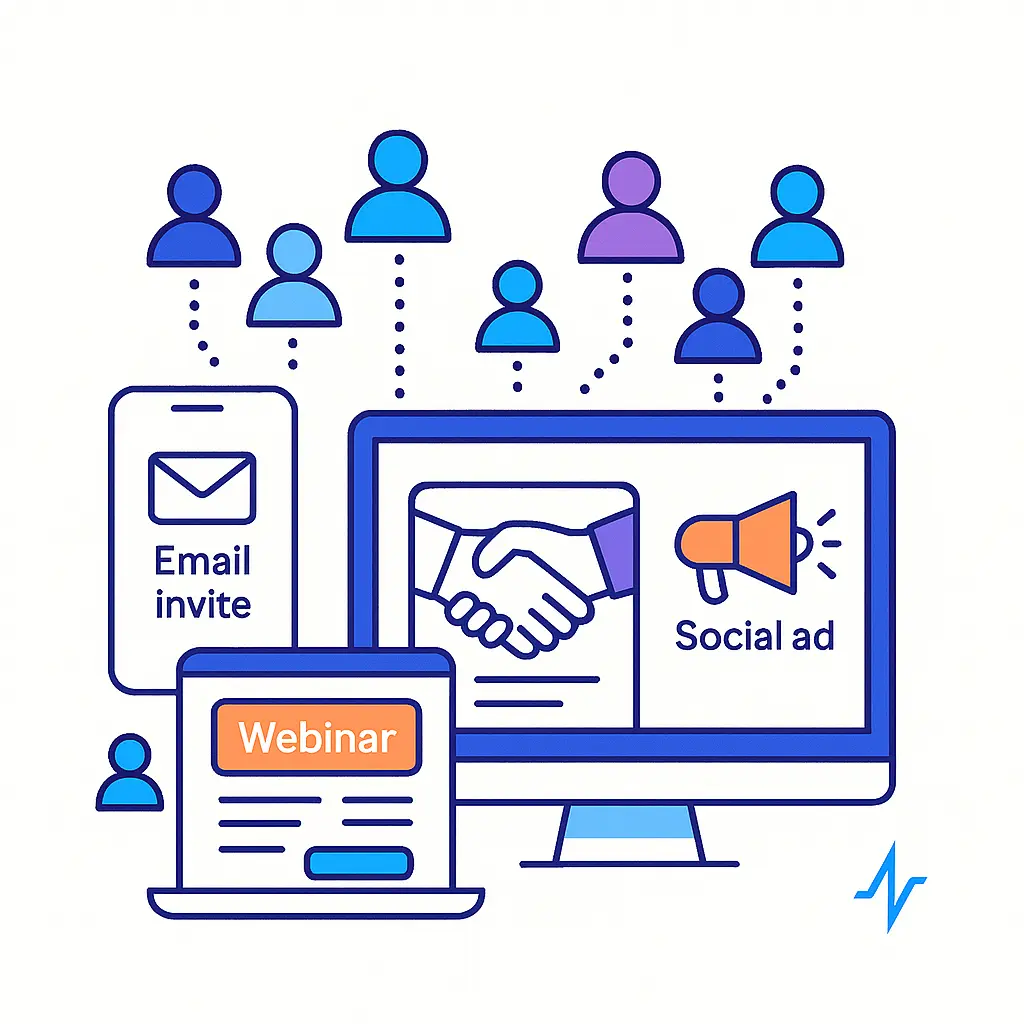
- Webinars
- Medical conferences
Using a tailored approach ensures that the marketing message resonates with the target audience, leading to higher engagement and better outcomes.
Consistency in messaging is another critical factor. While HCPs appreciate consistent information, it is equally important to adapt the messaging to different learning styles. This adaptability not only caters to the diverse preferences within the medical community but also enhances the overall effectiveness of HCP marketing. Recognizing and catering to these unique needs enables marketers to build a strong foundation for successful healthcare professional marketing strategies.
Identifying Your Target Audience
Identifying and segmenting your target audience is a cornerstone of any effective marketing strategy. In the context of healthcare professional marketing, this involves segmenting HCPs by their specialties, demographics, and behaviors. By doing so, marketing teams can tailor their outreach efforts to resonate with specific groups, thereby enhancing the effectiveness of their marketing campaigns.
Different specialties have distinct prescribing habits, experience levels, and information preferences, which necessitate a well-planned audience segmentation strategy. For example, a cardiologist’s interests and needs will differ significantly from those of a pediatrician. Therefore, it’s essential to gather comprehensive data, including patient demographics, professional, and behavioral information, from multiple sources such as CRM systems, surveys, and industry reports to create accurate HCP segments. This approach not only optimizes the timing and channels for delivering your marketing message but also builds trust and positions your company as a reliable partner.
Poor segmentation can lead to misaligned messaging, resulting in low response rates and disengagement from healthcare providers.
On the other hand, effective segmentation allows for the delivery of relevant content that meets the specific needs of each HCP group, thereby improving engagement and response rates and providing a better understanding of their preferences.
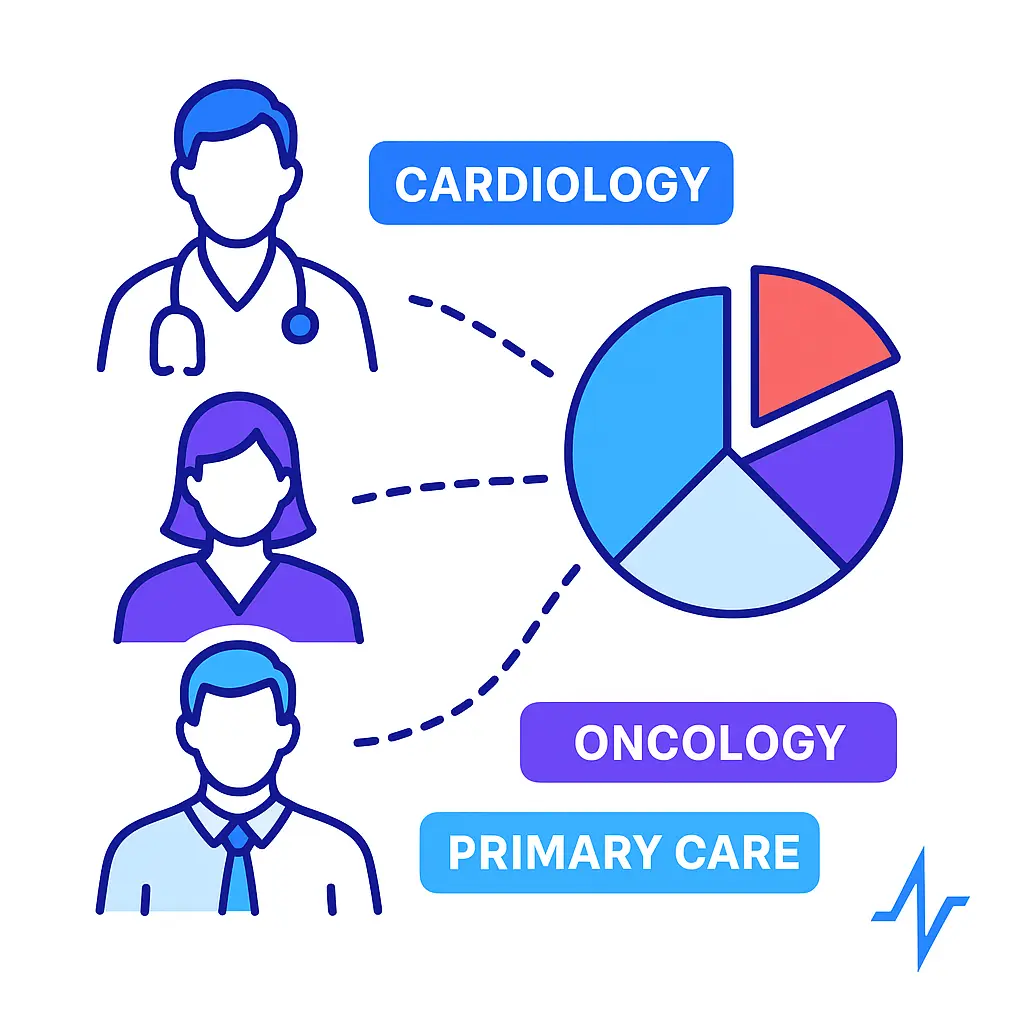
Defining the distinguishing characteristics of your target audience and continuously refining your segmentation strategy ensures that your marketing efforts are both impactful and efficient.
Crafting Personalized Content for HCPs
Personalized content is the linchpin of an effective HCP marketing strategy. Healthcare professionals appreciate content that acknowledges their unique challenges and preferences, which can vary significantly by specialty and practice setting. Crafting personalized content involves a deep understanding of these nuances and leveraging dynamic content and AI-driven recommendations to ensure relevance on a large scale.
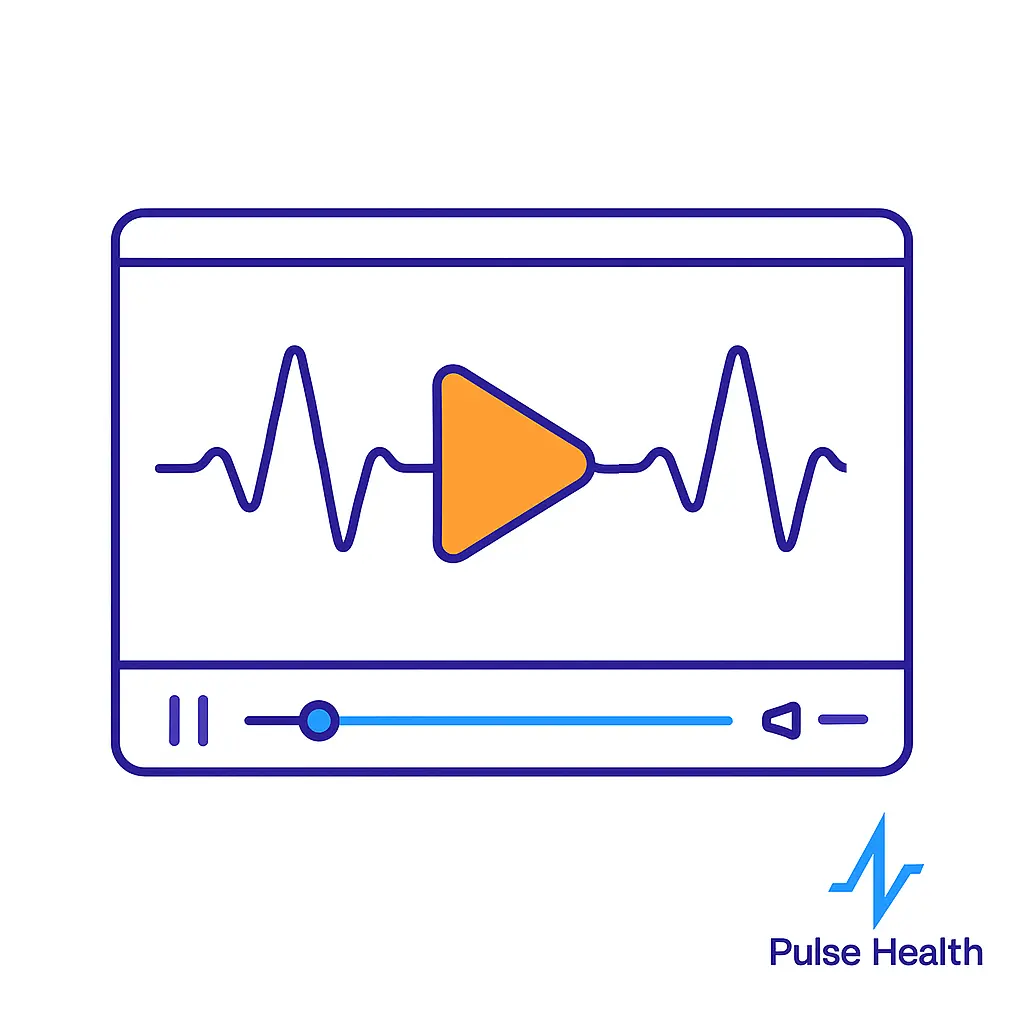
For instance, a successful marketing campaign for a new cardiovascular drug might include a clinical trial summary, a drug effectiveness comparison chart, and patient case studies.
This not only provides the necessary clinical evidence but also demonstrates the practical impact of the drug on patient outcomes.
Video content is another powerful tool in HCP marketing, as it simplifies complex medical information and captures the attention of busy healthcare professionals.
Pulse Health plays a crucial role in enabling personalized, data-driven communication strategies from pre-launch to post-market support. By using modular content strategies, marketers can:
- Build personalized communications using pre-approved, adaptable content blocks
- Ensure that the messaging remains relevant and engaging
- Ultimately foster stronger connections with HCP audiences.
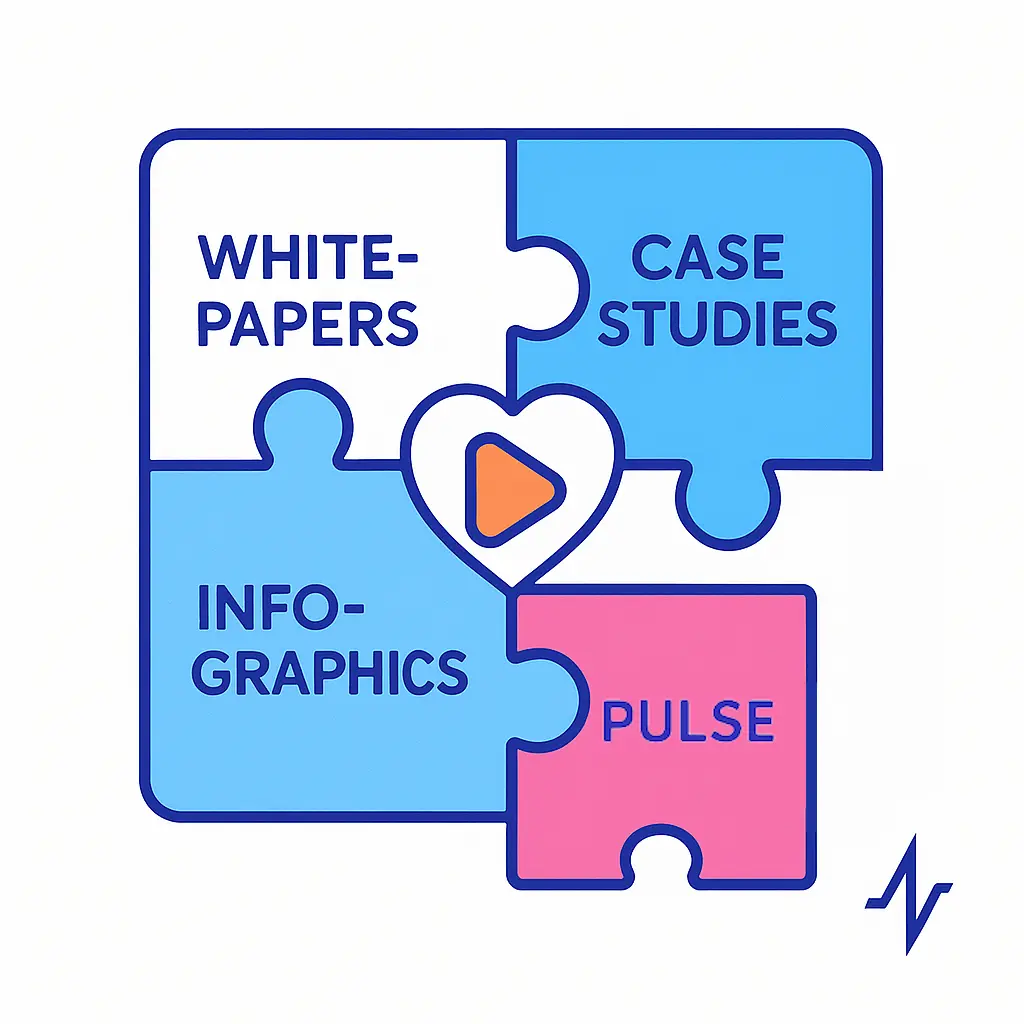
Delivering clear and targeted key messages through multiple marketing channels is essential to ensure effective communication with HCPs. This multi-channel approach reinforces key messages and aligns with HCPs’ preferences and schedules, improving engagement and brand recognition.
Moreover, the increasing preference for online platforms among healthcare professionals highlights the need for convenient and easily accessible information. Personalized email campaigns, tailored to the prescribing habits and preferences of different HCP segments, can significantly enhance engagement and drive better outcomes. Focusing on personalized content allows marketers to create meaningful connections that resonate with healthcare providers and support their ongoing education and practice needs, including understanding prescribing patterns, especially for medical device manufacturers.
Utilizing Omnichannel Marketing Strategies
An omnichannel marketing strategy is essential for reaching healthcare professionals through their preferred communication channels and understanding their channel preferences. This approach enhances personalization, allowing for tailored messages based on the target audience’s journey. Implementing omnichannel marketing allows companies to achieve higher return on investment (ROI) due to the customized interactions it facilitates.

Effective HCP marketing focuses often employs multiple channels, such as email, social media platforms, targeted online ads, and virtual conferences, to reach practitioners.
The seamless flow of information across these channels enhances the user experience and is likely to increase conversions, leaving lasting impressions.
For instance, creating micro-content that delivers valuable insights in under two minutes is essential, as busy healthcare professionals prefer quick, digestible information.
HCP marketing plays a crucial role in this strategy.
The Pulse Engagement Cloud is a powerful tool that allows life sciences teams to manage and automate highly personalized omnichannel marketing campaigns. Utilizing multiple channels for outreach, such as email campaigns and social media, allows marketing teams to maximize engagement and ensure that their marketing message reaches the right audience at the right time across multiple platforms. This coordinated effort can lead to a significant increase in prescription fills, demonstrating the effectiveness of an omnichannel approach.
Embracing Digital Marketing for HCPs
The digital transformation of the healthcare industry has revolutionized how pharmaceutical companies and medical device manufacturers connect with healthcare professionals. Digital marketing now plays a critical role in HCP engagement, offering a range of online platforms and social media channels that enable marketers to reach their target audience with unprecedented precision and efficiency. Through digital marketing, companies can deliver relevant messaging and educational content directly to high value providers, adapting their approach to the preferences and behaviors of each healthcare professional.
Audience segmentation is a key advantage of digital marketing, allowing marketers to tailor email campaigns, webinars, and social media outreach to specific specialties, practice settings, or prescribing habits.
This targeted approach not only increases the effectiveness of marketing efforts but also enhances the overall experience for healthcare professionals, who receive information that is timely, relevant, and actionable.

Real-time analytics further empower marketing teams to track engagement, measure campaign performance, and refine their strategies for optimal ROI. By embracing digital marketing, pharmaceutical companies and medical device manufacturers can foster stronger HCP engagement, influence prescribing behavior, and build lasting relationships with key decision makers across multiple channels.
Leveraging Data-Driven Insights
In today’s digital marketing landscape, leveraging data-driven insights is crucial for customizing marketing strategies and improving engagement with healthcare professionals. Data analytics helps identify the most effective marketing channels, allowing healthcare marketers to tailor their strategies for maximum impact. By analyzing clinical trial data, market research, and real-world data, companies can make informed decisions that enhance their marketing efforts. These insights also support the HCP decision making process by providing relevant, timely information that helps healthcare professionals make data-driven and personalized choices.

ROI analysis through data analytics enables healthcare organizations to determine which marketing campaigns yield the best financial returns.
Predictive analytics, such as those offered by the Pulse Analytics tool, aid in anticipating future market trends by analyzing historical data patterns.
This allows marketing teams to forecast HCP behavior and measure the ROI of their initiatives accurately.
The real-time analytics provided by Pulse Health offer organizations the ability to adjust their strategies quickly based on campaign performance and HCP engagement patterns. This flexibility ensures that marketing campaigns remain effective and relevant, ultimately leading to better engagement and improved outcomes. Leveraging data-driven insights enables marketers to refine their approach and deliver more personalized and impactful marketing messages.
Ensuring Regulatory Compliance
Regulatory compliance is a cornerstone of healthcare marketing, ensuring that all marketing activities adhere to legal standards and protect patient information. Compliance involves following regulations like HIPAA and GDPR, which are designed to maintain patient trust and avoid financial penalties. Regulatory requirements also significantly impact sales rep visits, making it necessary to develop compliant alternative engagement strategies for direct interactions with physicians. Training marketing teams on these regulations is crucial to ensure that all marketing efforts remain compliant and trustworthy.
Regular audits of marketing campaigns can help identify and resolve any compliance issues proactively.
Using secure tools and technologies that meet compliance standards is vital for handling sensitive patient data in marketing efforts.
For example, Pulse Health’s solutions integrate consent management and privacy controls into their CRM functionalities, ensuring that all marketing activities comply with regulatory standards.
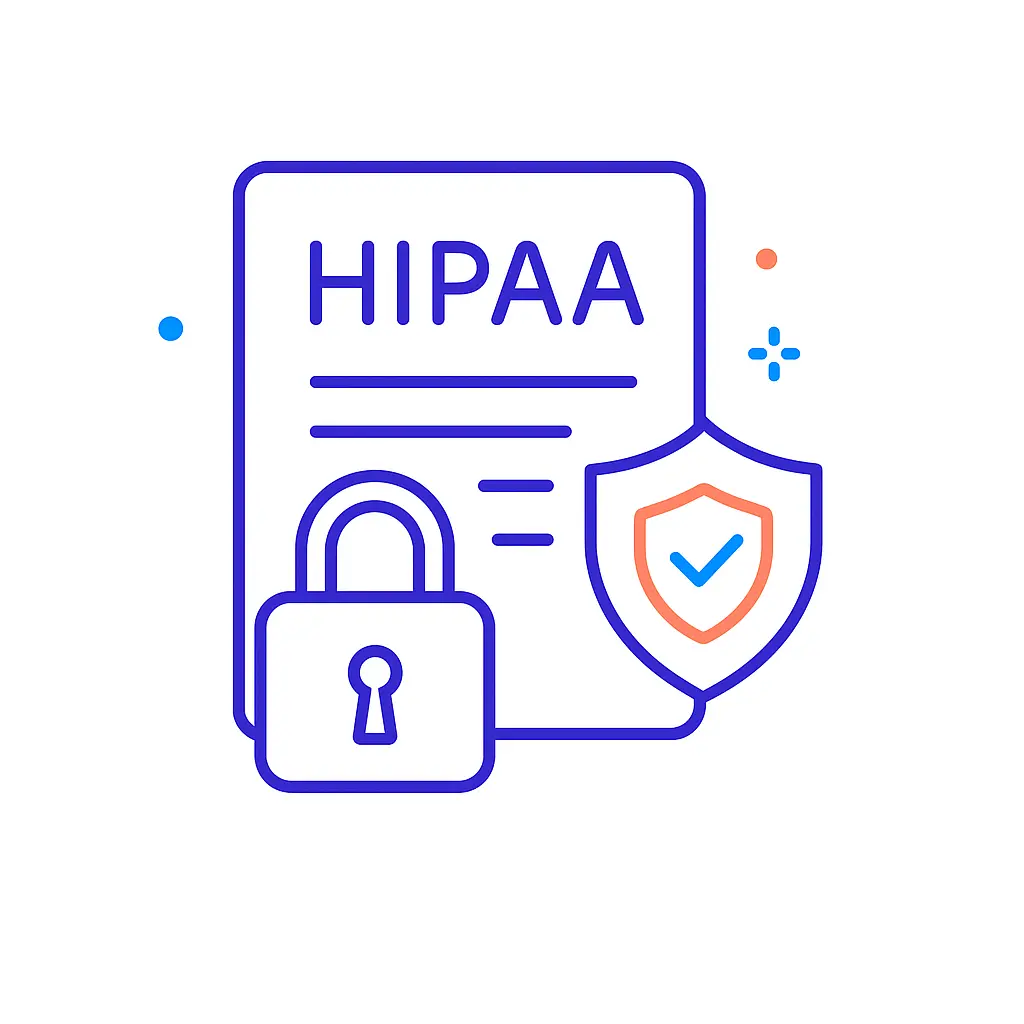
Transparent communication with patients about how their data will be used during marketing activities is also essential. Maintaining high standards of regulatory compliance allows companies to protect patient information, build trust with healthcare professionals, and ensure the success of their marketing campaigns.
Building Long-Term Relationships with Key Opinion Leaders
Building long-term relationships with key opinion leaders (KOLs) is essential for fostering trust and collaboration in healthcare marketing. Early outreach to KOLs can help establish strong relationships and build rapport before their expertise is needed. These relationships are critical as KOLs provide valuable feedback that can guide product development and ensure it meets the needs of patients, showcasing thought leadership in the industry.
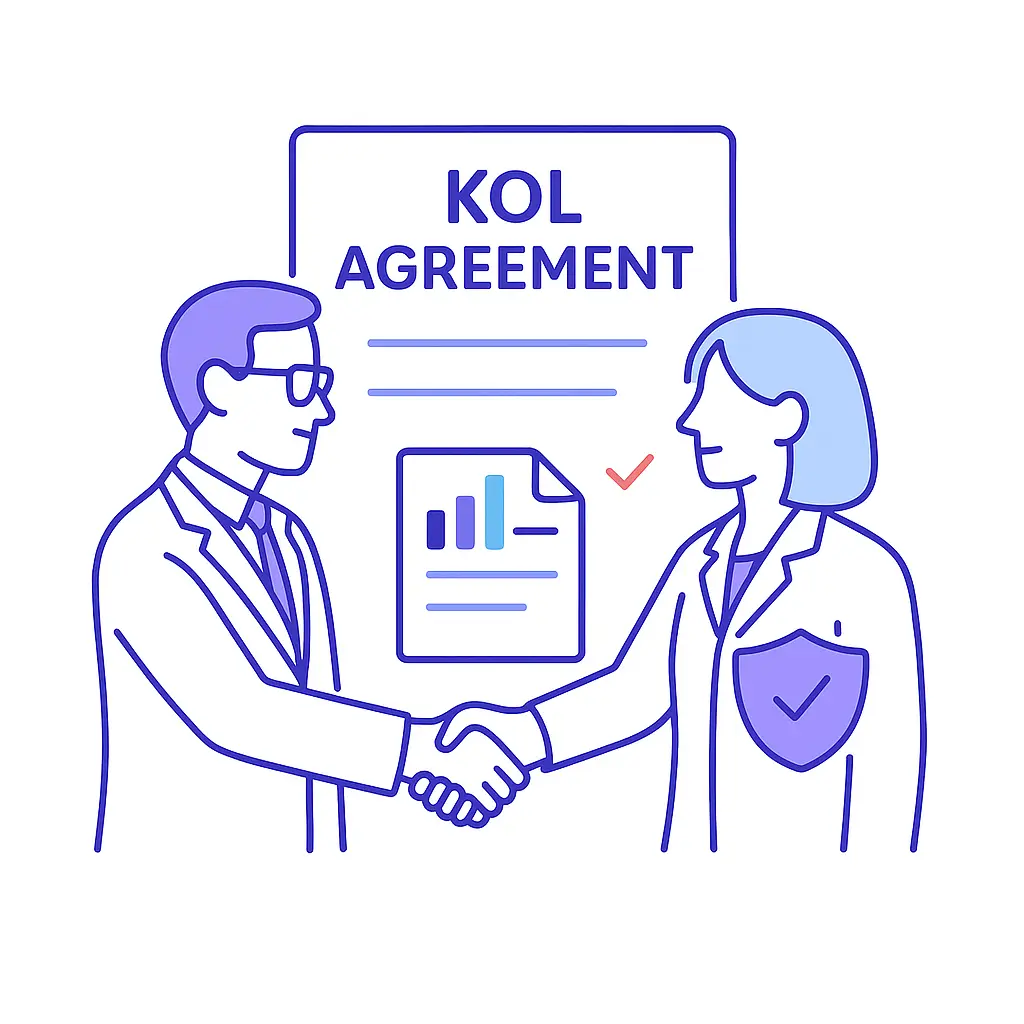
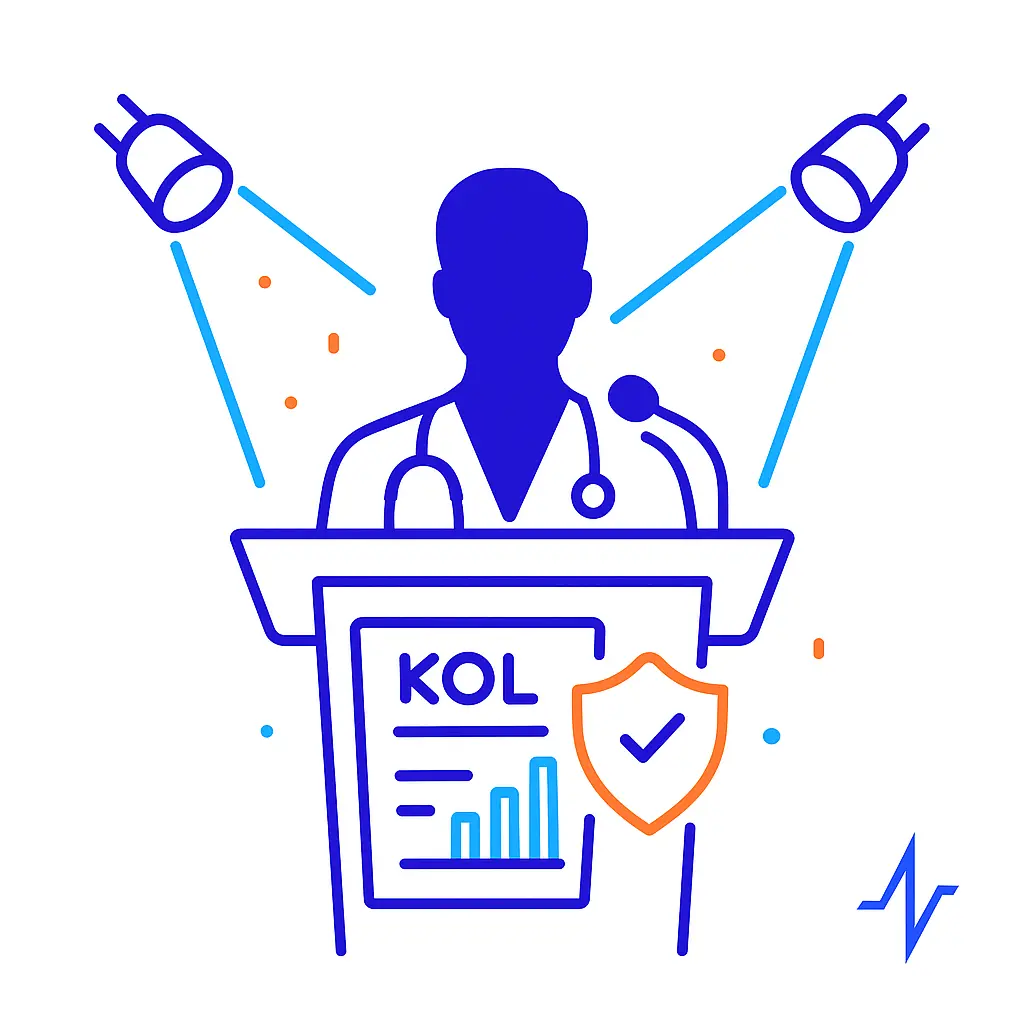

Incentives beyond monetary compensation, such as professional development opportunities, can strengthen KOL engagement. By offering these incentives, companies can foster a sense of collaboration and mutual benefit, leading to more robust and productive partnerships. The input from KOLs also validates marketing strategies and enhances the credibility of healthcare products and services.
Engaging KOLs effectively can significantly impact the success of marketing campaigns. Their insights and endorsements can drive product adoption and influence the prescribing behavior of other healthcare professionals. Building lasting relationships with KOLs enhances the brand’s reputation in the market and ensures the long-term success of their marketing efforts.
Implementing Account-Based Marketing
Account-based marketing (ABM) is a targeted strategy that focuses on high-value accounts with personalized campaigns. Unlike broad marketing efforts, ABM emphasizes targeted engagement with specific accounts, ensuring that marketing resources are used efficiently. This approach allows healthcare companies to provide tailored messaging that addresses the specific pain points of high-value accounts.

ABM fosters better alignment between sales and marketing teams, leading to increased engagement and higher chances of closing deals.
By collaborating closely, these teams can create a unified marketing strategy that resonates with the target accounts and drives better results.
Engaging KOLs within these accounts also plays a critical role in the success of ABM, as their insights and endorsements can significantly influence product adoption.
Implementing ABM requires a well-coordinated effort and a deep understanding of the target accounts’ needs and preferences. Focusing on high-value accounts and delivering personalized marketing messages allows companies to achieve more impactful and effective HCP marketing strategies.
Measuring and Optimizing Campaign Performance
Measuring and optimizing campaign performance is essential for ensuring that marketing efforts are effective and yield measurable results. Regular assessment of key elements and key performance indicators (KPIs) is crucial for ongoing improvement. Audience quality is a critical metric that ensures marketing efforts are directed towards the most relevant healthcare professionals.
Pulse Analytics provides real-time visibility into campaign performance, allowing organizations to adjust strategies quickly based on engagement patterns.
This real-time feedback enables marketers to optimize their campaigns and improve overall effectiveness.
Refining their approach based on analyzed campaign performance enables marketers to enhance and personalize their marketing strategies, leading to better engagement and outcomes, including improved click through rates.
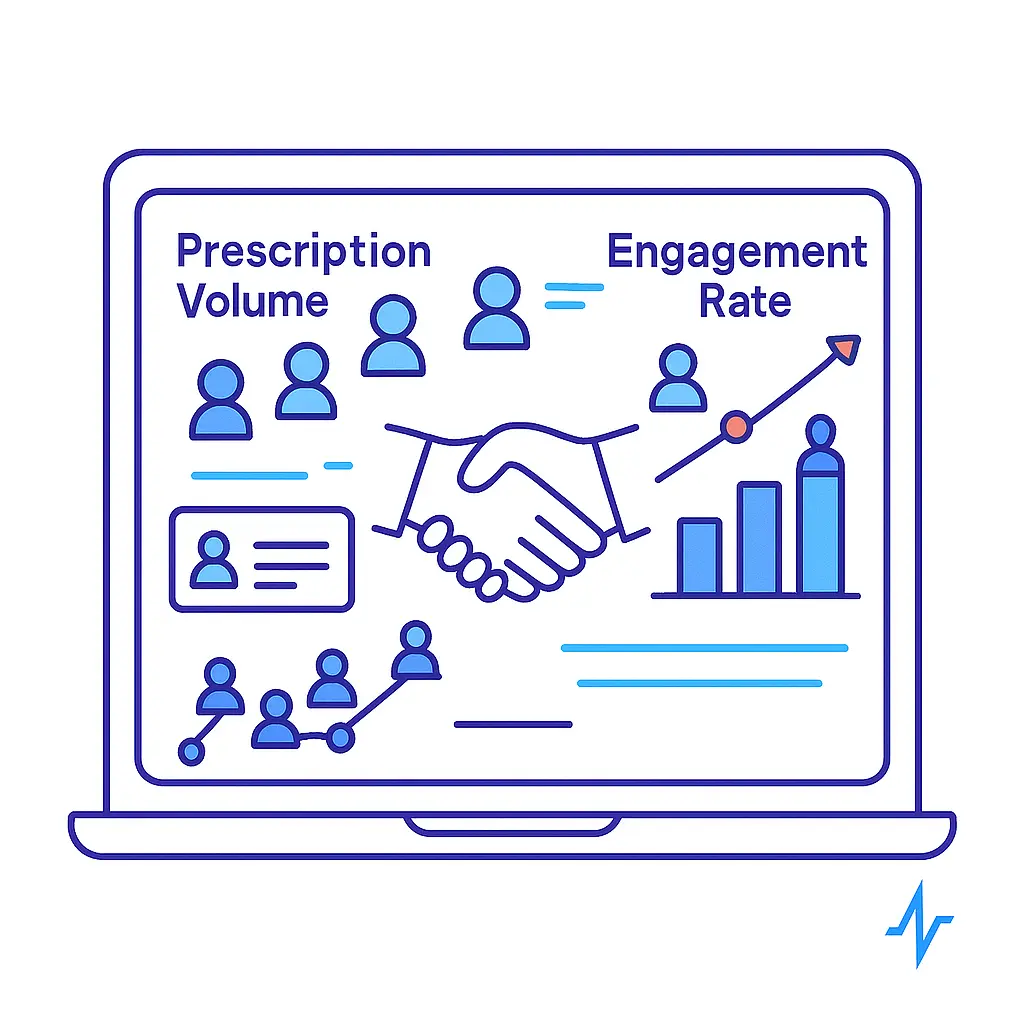
Learning from campaign observations is essential for continuous improvement. Pulse Analytics offers intuitive dashboards and actionable insights that help teams optimize their marketing efforts and demonstrate ROI. By focusing on measuring and optimizing campaign performance, companies can ensure their marketing strategies remain effective and impactful.
Partnering with Pulse Health for Superior HCP Engagement
Partnering with Pulse Health offers pharma companies and biotech companies access to simple, powerful, all-in-one solutions for best-in-class HCP engagement.
The Pulse Engagement Cloud provides:
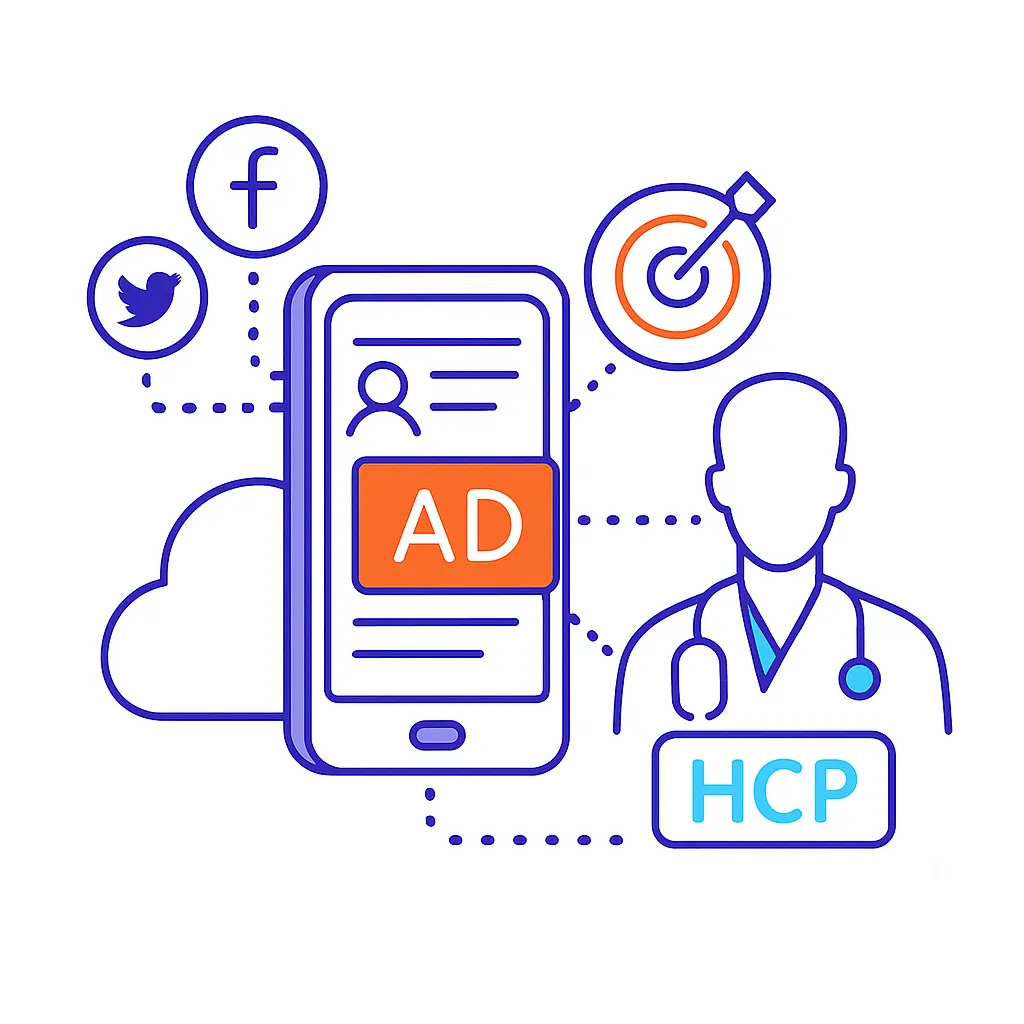
- Data-driven growth with hyper-personalized, targeted messaging and insights
- Centralized campaign data
- Integration with over 45 pharma-specific tools
- Seamless communication with healthcare professionals
Pulse Health also provides:
- Access to over 1 million healthcare professionals (HCPs) and 30 million opt-in patients through Pulse Data Access, ensuring accurate targeting for campaigns, including a diverse patient population.
- A comprehensive and compliant dataset that allows brands to precisely segment and target the right audiences, including hard-to-reach or previously unengaged healthcare professionals, and deliver information and education about pharmaceutical products to healthcare professionals.
- The Pulse Certified program, which trains marketers and brand teams to maximize the platform’s potential, helping them execute high-impact, compliant campaigns.
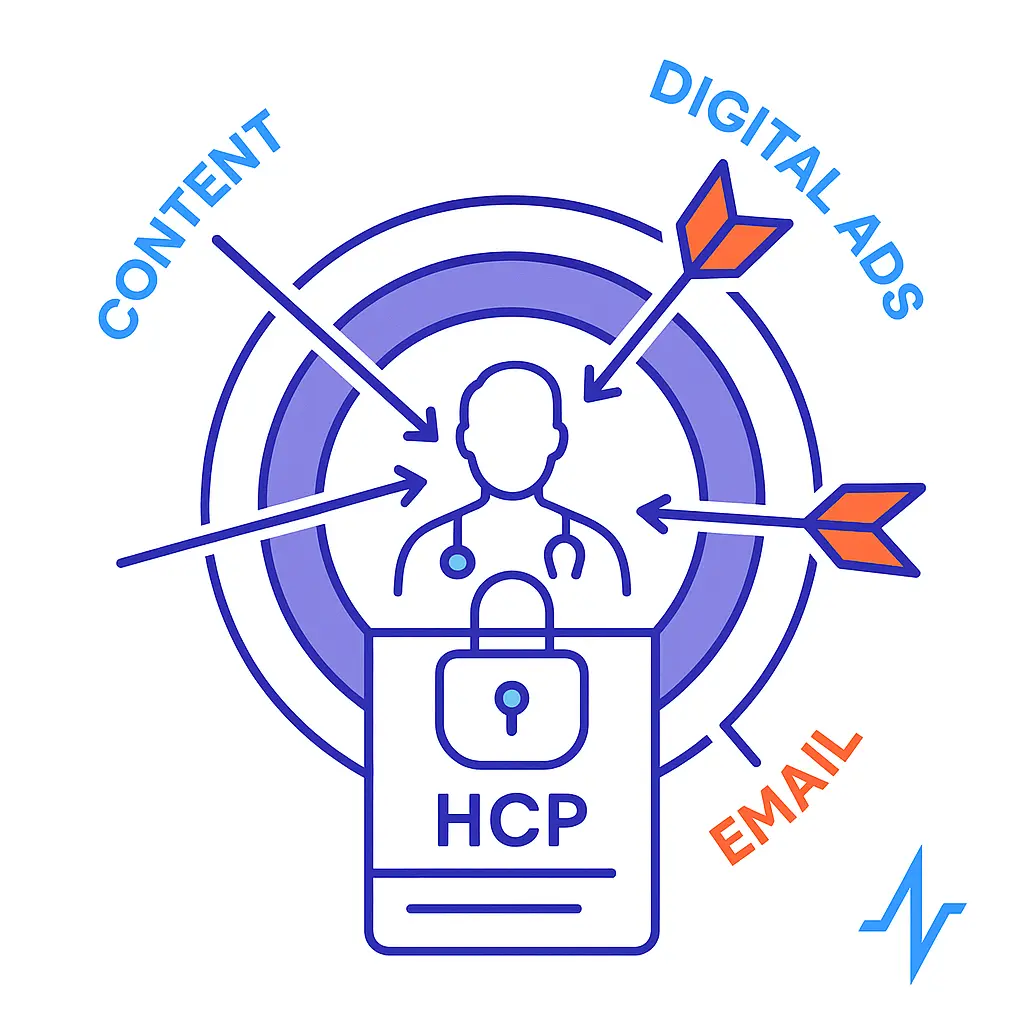
Partnering with Pulse Health allows companies to enhance their HCP engagement efforts, connect with healthcare professionals and patients throughout a product’s lifecycle, and achieve superior marketing outcomes. The secure, streamlined multi-brand access and single sign-on (SSO) feature further enhance the efficiency and compliance of managing multiple pharma brands or therapeutic areas.
Future of HCP Marketing
The future of HCP marketing is set to be dynamic and transformative, driven by rapid advancements in technology, evolving regulatory landscapes, and shifting expectations among healthcare professionals. As the pharmaceutical industry continues to innovate, marketing strategies must keep pace by embracing digital marketing, leveraging real world data, and prioritizing personalized, patient-centric communication. The integration of clinical evidence and real-world outcomes into marketing messages will become increasingly important, as HCPs seek information that supports better patient outcomes and aligns with the latest treatment guidelines.
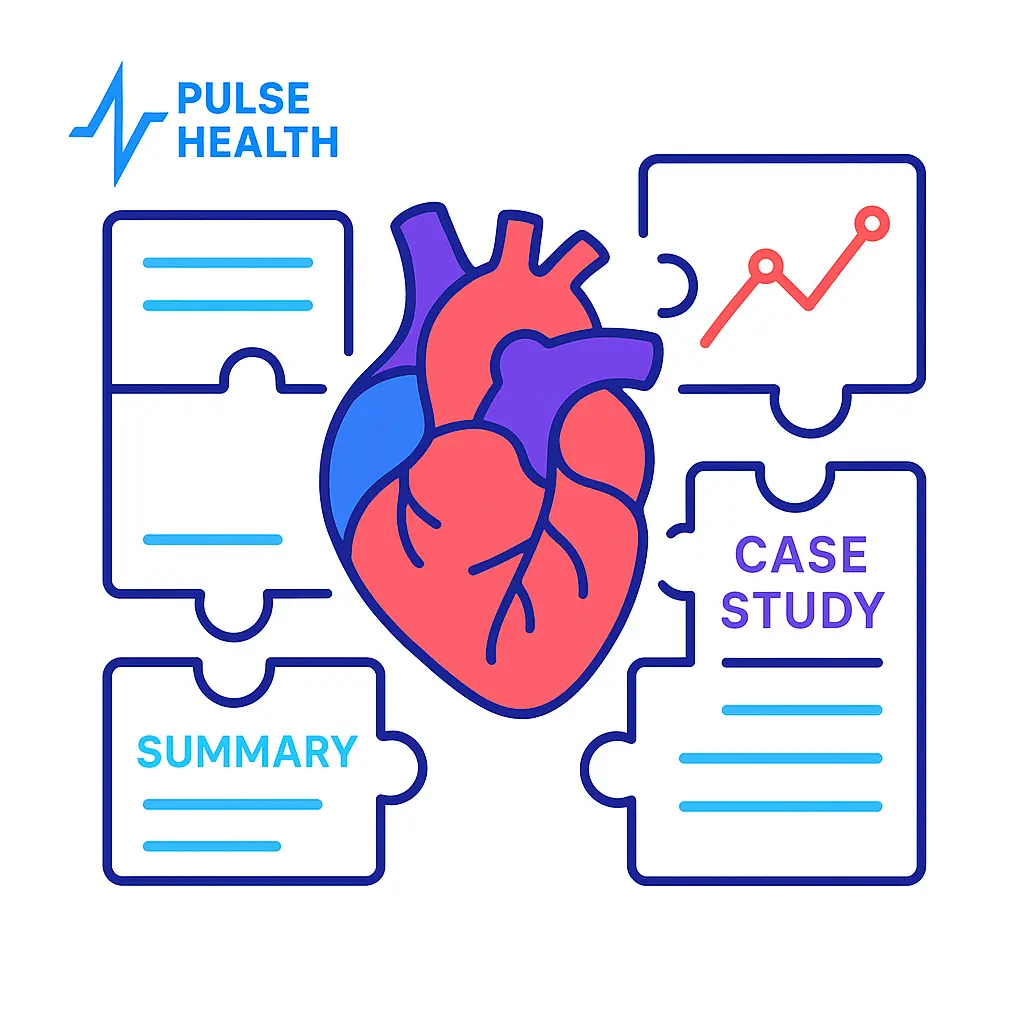


Emerging trends such as the rise of personalized medicine, greater use of data analytics, and the expansion of digital engagement channels will shape the next generation of effective HCP marketing. Pharmaceutical companies and medical device manufacturers will need to remain agile, adapting their marketing efforts to meet changing HCP preferences and regulatory requirements.
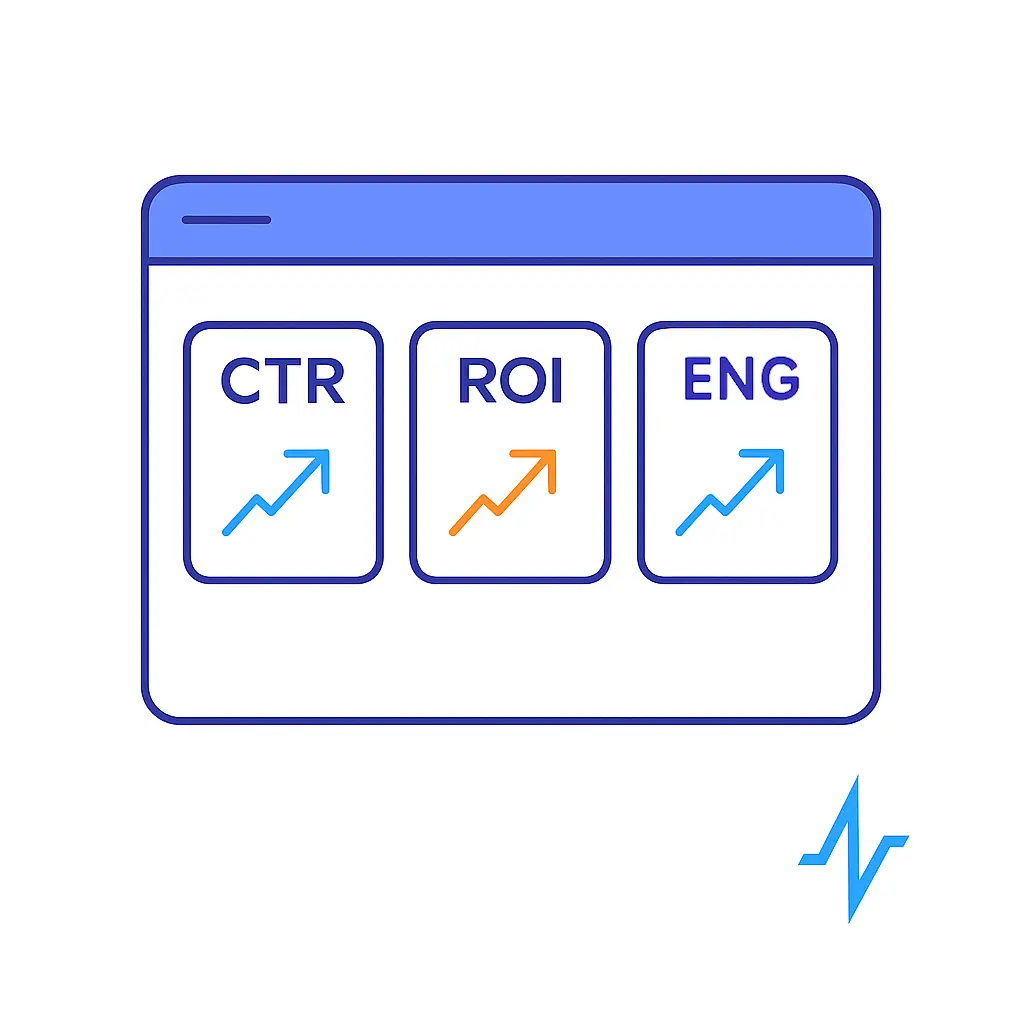
Transparency, compliance, and a commitment to delivering value to both healthcare professionals and patients will be essential for building trust and driving meaningful engagement. By staying ahead of these trends and continuously refining their marketing strategies, organizations can ensure their HCP marketing remains effective, relevant, and impactful in an ever-evolving healthcare landscape.
Get Started with Pulse Health Today
An effective HCP marketing strategy requires a deep understanding of healthcare professionals’ unique needs, targeted audience segmentation, personalized content, and a robust omnichannel approach.
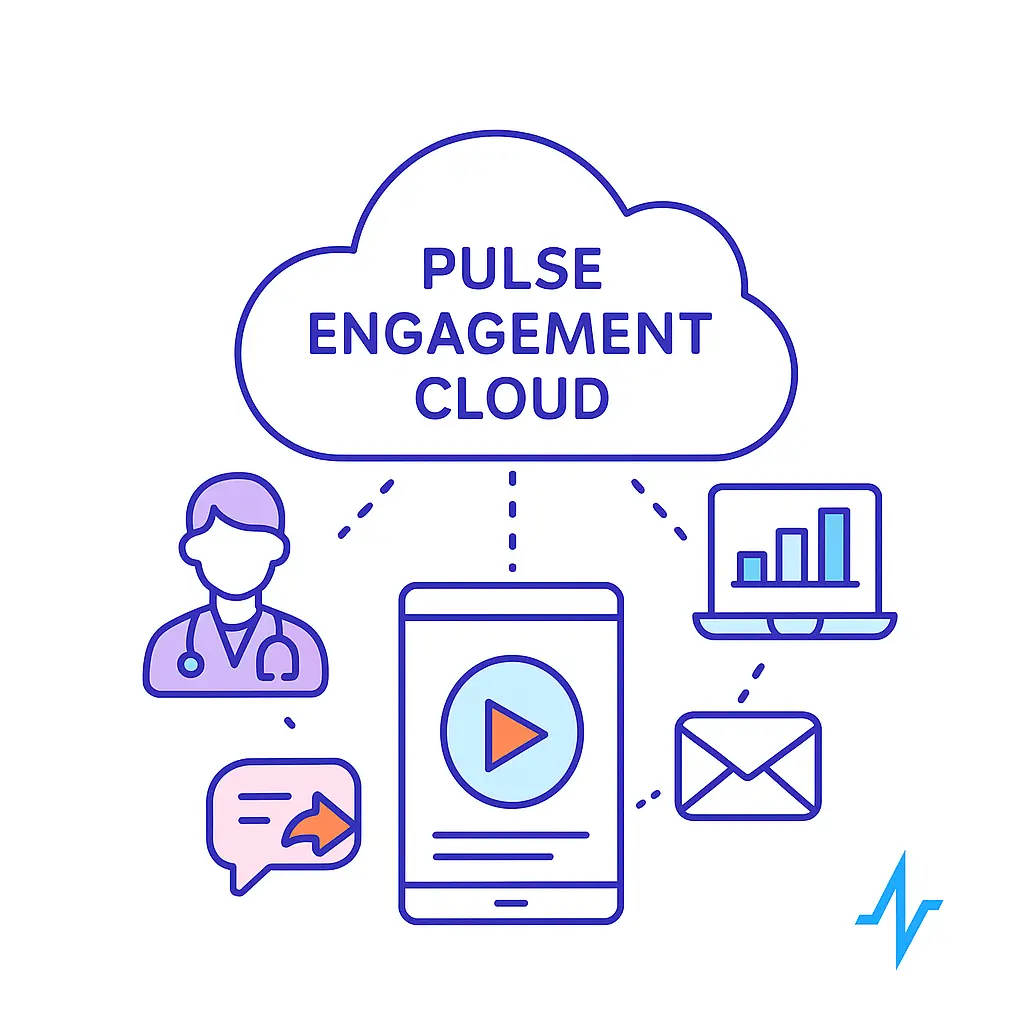
Leveraging data-driven insights and ensuring regulatory compliance are also critical components.
Continuing medical education is another essential element, supporting ongoing professional development and building trust with healthcare professionals.
Building long-term relationships with key opinion leaders and implementing account-based marketing can further enhance your marketing efforts.
By following these best practices and partnering with Pulse Health, you can create impactful marketing campaigns that resonate with healthcare professionals, improve patient outcomes, and drive data-driven growth. Embrace these strategies, and watch your HCP marketing efforts reach new heights. Schedule a demo today to find out exactly how Pulse Health can help you market to HCPs.
Frequently Asked Questions
Segmenting healthcare professionals in marketing is crucial because it allows for targeted communication that aligns with their specific specialties and information preferences, thus fostering trust and establishing companies as reliable partners. Tailored content enhances the overall effectiveness of marketing outreach.
Personalized content significantly enhances HCP marketing by addressing the specific challenges and preferences of healthcare professionals, thereby increasing relevance and engagement. This methodology builds credibility and fosters stronger connections with HCP audiences.
Implementing an omnichannel marketing strategy for healthcare professionals significantly enhances personalization and engagement by delivering tailored messages through various channels such as email and social media. This comprehensive approach ultimately leads to a higher return on investment.
Pulse Health ensures regulatory compliance in HCP marketing by integrating consent management and privacy controls into their CRM functionalities, along with conducting regular audits and utilizing secure tools to safeguard patient information. This comprehensive approach effectively upholds marketing activities within regulatory standards.
Key opinion leaders play a crucial role in healthcare marketing by providing feedback that informs product development and validating marketing strategies. Their endorsements boost credibility and can significantly influence the prescribing behaviors of other healthcare professionals.
